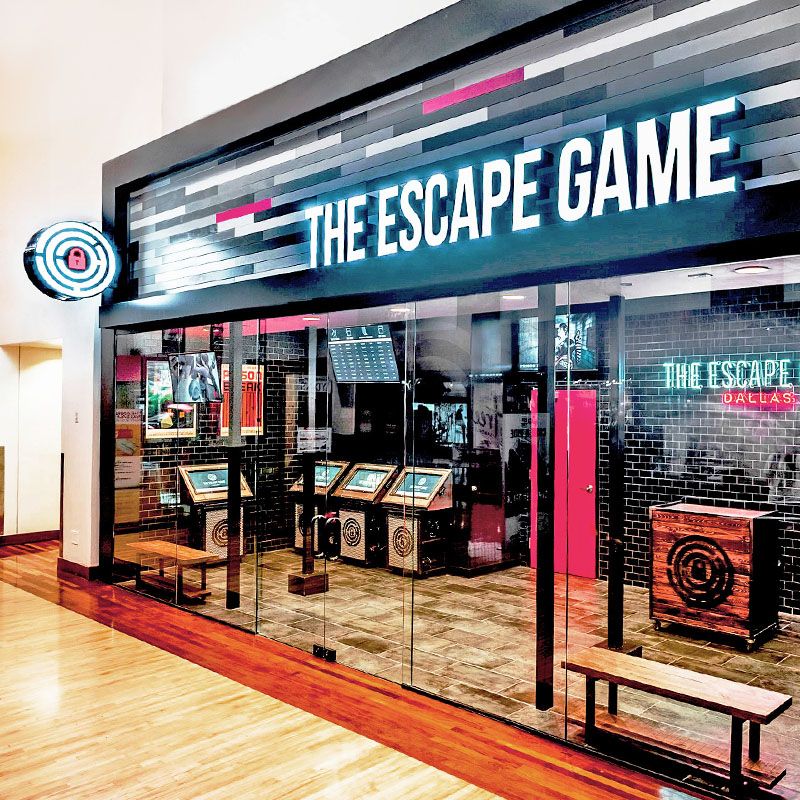Group Methods: Just How to Team up Successfully in a Getaway Area
Navigating the intricacies of a getaway area requires more than mere excitement; it calls for a well-coordinated method based in clear interaction, strategic role jobs, and adept time management. Teams have to actively listen to every participant's understandings, assign functions that line up with specific toughness, and keep normal check-ins to ensure focus and avoid redundancy. By cultivating a setting that values communication and flexibility, groups can significantly increase their effectiveness and success rates. The nuances of these strategies can transform the experience, but how precisely can they be executed to make the most of the potential for success?
Establish Clear Communication

To assist in clear communication, it is essential to assign a main point of contact for info circulation. Short, concentrated updates from each group participant can maintain the group educated without overwhelming them with details.

Assign Roles Strategically
While clear communication sets the structure for reliable team effort, designating roles purposefully makes sure that each employee's toughness are made use of properly. In a retreat space situation, the time-sensitive and intricate nature of difficulties demands an efficient method to job delegation. By recognizing and leveraging private proficiencies, groups can maximize their analytical abilities and enhance total efficiency.
First, examine the distinct abilities and characteristics of each participant. Someone with an eager eye for detail might stand out in finding concealed things, while a rational thinker can be better fit to addressing puzzles. It's just as crucial to have a leader who can supervise development, take care of the timeline, and make decisive phone calls when needed. This function usually requires solid organizational and interpersonal abilities.
Second, make sure that duties are versatile and versatile. As brand-new obstacles arise, the group must have the ability to pivot, reallocating jobs as needed. This flexibility aids preserve energy and protects against bottlenecks that can happen due to rigid function assignments.
Eventually, a calculated approach to duty task not only makes best use of the strengths of each group participant yet likewise promotes a cohesive atmosphere, driving the group in the direction of a successful retreat.
Use Diverse Skills
Identifying and taking advantage of the diverse skills within your group can considerably raise your efficiency in a retreat room. Each employee brings one-of-a-kind staminas to the table, and effectively leveraging these abilities can expedite problem-solving and improve total effectiveness. A team member with solid logical abilities may stand out at analyzing complicated codes or patterns, while one more with keen empirical abilities may promptly spot covert hints that others could overlook.
Motivate team participants to voice their insights and concepts without delay, ensuring that all possible remedies are considered. Additionally, assigning tasks that line up with each participant's staminas can avoid bottlenecks and make sure that development is continual.
Moreover, variety in abilities usually translates to variety in assuming designs, which is invaluable in a retreat space setup. While some obstacles may call for logical reasoning and precision, others might take advantage of imaginative and association of ideas. By acknowledging and leveraging this diversity, teams can resolve a wider variety of obstacles a lot more efficiently, therefore raising their chances of an effective getaway.
Manage Time Effectively

First, allocate preliminary mins for a quick study of the room. Recognize visible challenges and divide jobs based on group participants' staminas, guaranteeing that no one is idle. Establish interior time checkpoints to evaluate development occasionally; for example, purpose to have half the challenges solved by the mid-point of the video game. This practice can assist my review here keep the team concentrated and prevent time from escaping unnoticed.
In addition, stay clear of passage vision. If a puzzle is taking also long, revolve staff member or go on to one more challenge, returning later with fresh point of views. Communication is vital-- maintain everybody updated on fixed challenges and staying tasks to avoid repetitive initiatives.
Last but not least, utilize any kind of hints or clues moderately however strategically - best escape room. Understanding when to request assistance can save valuable time. By sticking to these time management concepts, teams can considerably improve their opportunities of a successful and enjoyable getaway space experience
Debrief and Mirror
Representation is an essential facet of More Help group advancement and improvement in the context of retreat areas. Once the difficulty is finished, whether effectively or not, it is vital for the team to participate in a structured debriefing session. This procedure enables employee to evaluate their efficiency, identify staminas, and determine areas for improvement.
Begin the debrief by reviewing what worked out. Highlight specific circumstances of effective interaction, problem-solving, and partnership. Recognizing these positive actions enhances them and motivates their rep in future challenges.
Following, resolve the obstacles experienced. Review minutes of confusion, miscommunication, or inefficient approaches. Encourage an open and constructive dialogue where staff member can share their viewpoints without worry of objection. This promotes a culture of constant improvement and discovering.
Conclusion
Finally, effective collaboration in a retreat area is asserted upon clear communication, strategic function projects, the efficient use of diverse abilities, and competent time monitoring. Routine check-ins and organized debriefings are necessary for maintaining focus and cultivating continuous renovation. By producing a natural and adaptive group environment, the possibility of successfully resolving problems and achieving the objective of leaving the Discover More room is dramatically enhanced. This technique not just guarantees success but also advertises collective growth and discovering.